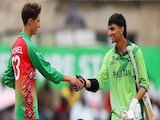Diwali, India's most celebrated festival, brings with it brightness, joy, and indulgence. But for many children, it also brings an unseen health setback. Amid the sweets, fried snacks, and festive chaos, nutrition often slips through the cracks. For a nation already struggling with child malnutrition, this seasonal lapse can have lasting consequences.
According to the National Family Health Survey (NFHS-5), more than 35% of children under five are stunted, while 19% suffer from acute malnutrition (wasting). Even more alarming, 67.1% of children aged 6-59 months are anaemic. UNICEF estimates that malnutrition contributes to nearly 69% of deaths among under-five children in India (2019). These aren't just numbers. They reflect millions of children whose growth, learning, and immunity are compromised from the start.
As the country lights lamps for Diwali, it's time to shine the same focus on children's health. This festival of light can also be a reminder to nourish the nation's future. As Dr Naveen Thacker, global pediatric leader and 2025 Gates Foundation Global Goalkeepers Champions Awardee, notes, "Nutrition is the foundation of life. During festivals, we must not let celebration overshadow care."
The National Picture: Progress Uneven, Problems Persistent
India has made visible progress in tackling child malnutrition, but gains are uneven and fragile. A look at the data from NFHS-4 (2015-16) and NFHS-5 shows slight declines in stunting (from 38.4% to 35.5%) and underweight (from 35.8% to 32.1%), yet progress on wasting remains slow. In several districts, Severe Acute Malnutrition (SAM) has actually increased, rising from 6.6% to 7.7% in certain areas.
These figures reveal deep inequities: malnutrition is not just a rural or poverty-related issue. In urban areas too, 30% of children are stunted and 18.5% are wasted, a reflection of poor diet diversity and rising dependence on processed foods. Experts note that India's child nutrition crisis is multidimensional. A child may simultaneously face undernutrition, micronutrient deficiency, and anaemia - all of which interact to weaken growth and immunity.
When Diwali arrives, families across socio-economic groups experience disruptions in diet, routine, and food quality, making already fragile nutrition even more vulnerable.
How Diwali Disrupts Child Nutrition
During festive seasons, the strictest and the most health-conscious of people let their diets slip, and this inevitably happens to children as well. Here are some ways Diwali disrupts child nutrition:
1. Sweet Overload, Nutrient Deficit
Traditional Diwali foods are often calorie-dense but nutrient-poor. Children love laddoos, barfis, jalebis, and fried namkeen, but excessive sugar and oil intake displaces healthier foods. These treats lack proteins, vitamins, and minerals essential for growth. Overindulgence can suppress appetite for nutritious meals like dals, vegetables, or fruits.
2. Irregular Eating Patterns
With busy celebrations and pujas, children's meal schedules often go haywire. Main meals get skipped, postponed, or replaced by quick snacks. Inconsistent eating can reduce overall nutrient absorption and cause digestive discomfort.
3. Hygiene and Infections
Homemade sweets prepared in bulk, often stored for days, can lose freshness. Street food, commonly consumed during festive outings, increases the risk of infections like diarrhea and food poisoning, both major causes of malnutrition in children.
4. Less Cooking, More Processed Food
Parents juggling work, guests, and festivities may opt for packaged snacks or restaurant meals over home-cooked balanced thalis. This often means fewer servings of pulses, vegetables, and whole grains.
5. Pollution and Illness
Smog peaks during Diwali, aggravating respiratory infections. Malnourished children, with weaker immune defences, are more susceptible to coughs, fevers, and asthma, further reducing appetite and nutrient retention.
Expert Perspective: Dr Naveen Thacker On Nourishing Through Festivity
Dr Naveen Thacker, a globally recognised paediatrician and Executive Director of the International Pediatric Association, stresses that good nutrition underpins every aspect of child growth and national progress.
"Nutrition is not a seasonal issue - it is the bedrock upon which immunity, cognitive growth, and societal resilience rest. During festivals, we must not let traditions compromise that foundation," he says.
He adds that festivals like Diwali can become powerful opportunities to teach children about mindful eating and balance rather than indulgence. "A well-nourished child is better protected, learns better, and carries the light of health far beyond Diwali," Dr Thacker says.
He encourages parents to:
- Offer sweets in moderation, paired with protein-rich foods like milk, nuts, or chana.
- Use fortified ingredients, such as iron-enriched flour and iodised salt, in festive recipes.
- Keep a regular meal routine and avoid skipping main meals for snacks.
- Encourage fruits like guava, papaya, and citrus alongside festive foods.
- Watch for warning signs of malnutrition such as fatigue, loss of appetite, or sudden weight loss.
Practical Steps For Parents This Festive Season
Small, consistent changes can protect children's nutrition even during Diwali:
- Start by making smart swaps. Prepare sweets using jaggery, dates, or dry fruits instead of refined sugar. Replace deep-fried snacks with baked or air-fried options. Introduce protein-rich foods such as eggs, paneer, lentils, and yoghurt into everyday meals.
- Keep meals colourful. Add a variety of vegetables and fruits like carrots, spinach, beetroot, sweet potato, amla, and pomegranate for natural vitamins and antioxidants that support lung and immune health during the smog season.
- Maintain meal structure despite festivities. Children thrive on routine so breakfast, lunch, and dinner should remain balanced, with fruits, nuts, or yoghurt as snacks.
- Hydration is often overlooked. Ensure children drink plenty of clean water, soups, or buttermilk to aid digestion and prevent dehydration from salty or oily foods.
- Finally, ensure hygiene. Store food safely, avoid reheating multiple times, and be cautious with street food. Clean hands before eating. Follow simple steps that prevent infections and nutrient loss.
Diwali symbolises victory of light over darkness, a message that resonates powerfully when applied to health. But for millions of children across India, malnutrition dims that light quietly every year. With over one in three children malnourished and two-thirds anaemic, India's progress depends on sustained attention to nutrition. During the festive season, families can play a pivotal role by balancing indulgence with awareness.
Dr Naveen Thacker reminds us, that almost is never enough: "Every celebration can be a step toward health if we choose wisely." Choosing smart ingredients, maintaining meal routines, and fortifying traditional recipes are small steps that keep children strong and resilient. This Diwali, let's pledge not only to light our homes but to illuminate the path to better child health, where every child is nourished, protected, and empowered to thrive.
Disclaimer: This content including advice provides generic information only. It is in no way a substitute for a qualified medical opinion. Always consult a specialist or your own doctor for more information. NDTV does not claim responsibility for this information.















